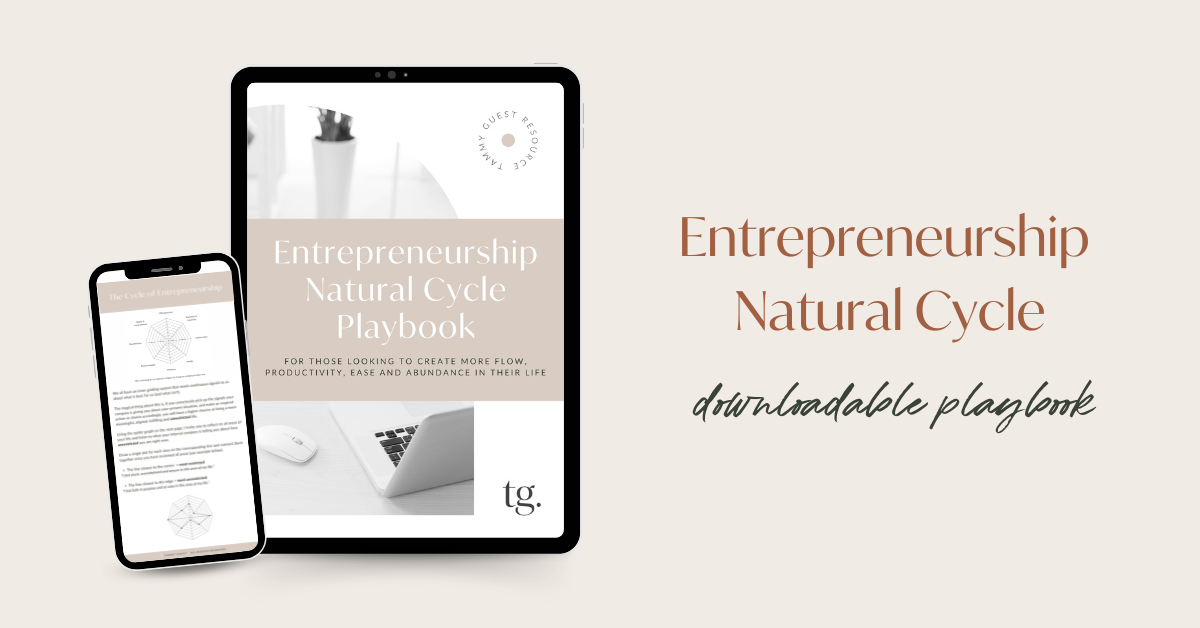Today I thought I would answer one of the biggest questions I get sent all the time.
It usually sounds something like this:
“I really am excited about being in practice. I’m really excited about running my business and helping people, but this has happened and this has happened and this has happened and therefore I am overwhelmed and I just can’t get motivated. How do I stay motivated?”
Have you ever felt that before?
I absolutely have, and my experience the past couple of days has really brought that to the fore, so I thought it would be a good conversation to have.
If you are participating in the Nat Biz Scav Hunt that’s just become available, then you might understand that it’s all good and well to have all of the information. Most practitioners are learners – we love more knowledge! But it’s another thing to actually get motivated to do the things that are in, say for instance, that Nat Biz Scav Hunt or anything that we’re kind of committed to.
We usually commit to it because it’s part of our goal, part of our dream.
Feeling Resistance is Common
This week, I had so much resistance to doing what I needed to do to pass one of my theory exams. There are seven huge exams to become a commercial helicopter pilot here in Australia. Then, there’s a three-hour flying the helicopter exam, as well.
There was one particular exam that brought up so much resistance. I didn’t want to learn all the trigonometry, I didn’t like all the geometry and maths and all of that stuff. It just seems so far removed from what I’m actually doing and it doesn’t seem relevant when I’m flying a helicopter.
For those of you who have just come out of study, you probably get it. We learn so much stuff that is absolutely irrelevant on the job and the same thing happens in every industry.
I had so much resistance the other night! At that moment, I thought about all the things that motivate me. I have found five things that kick me into getting the motivation I need when I’m struggling, and I wanted to share them with you.
This is very useful information, particularly if you, as a practitioner, think, “That business stuff – that is so far removed from me helping a person in front of me. I really don’t want to know about all that tech stuff, I don’t really want to know about all those numbers!”
All the resistance comes up. I can still feel it viscerally from the other day. By the way, I passed my exam and I absolutely am stoked that I had the internal motivation to get all of those papers done and answer all those questions the way they needed to be. Even though in the moment of it, all I wanted to do was numb out.
It might be the same with you. I had a whole bunch of people going, “Procrastibake! Procrasticlean!” All of the things to procrastinate doing the thing you know you need to do because you think you don’t have the motivation to do it. If you do this too, make sure to share what you do to procrastinate (I was “procrastigramming, too!”).
So how do we find the motivation?
You need to get through that and recognise that you need some motivation to get past your resistance – or acknowledge the resistance and do it anyway.
Five Ways to Motivate Yourself
This is a clincher and it kicked in for me on a new level. You might have heard this before and it’s definitely out there, but every time you hear it there might be something new in it for you.
1. Have a Big Enough Why
Simon Sinek is the dude when it comes to the Why. If you haven’t watched his TED talk. or any of his YouTube videos, or read his book Start with Why, it’s probably time.
Having a big-enough Why is the root of being motivated. Because if you are really connected to your Why, everything else totally becomes irrelevant. It just becomes so easy because you know it’s in alignment with where you want to be and why you want to do it.
One of the biggest things I got from moving from helping so many thousands of people in my naturopath clinic to now helping thousands of practitioners is that my Why became so much bigger.
Helping my local community at the beginning was amazing and it was a big enough life for me to get up and go to work every day. But then towards the end of my time having a multi-modality clinic, that Why wasn’t big enough for me anymore. So I wasn’t as motivated and other feelings started to come on in.
Things like panic attacks before a big day and procrastinating. Or you know when you put out that little vibe of “I just wish everyone would cancel today” and then everybody does (if you’ve been in practice for a while, I know you’ve totally done that!).
When my Why changed and I realised that if I help 7000 practitioners help 7000 people, then I have the potential to help 49 million people with their health. Even though it’s a ripple effect and I don’t directly help them, I have the opportunity.
And my Why just got so big that I was like, “Okay, I’ve got to show up. I’ve got to keep showing up and I’ve got to share however I possibly can even if it sucks. I’ve got to do all of the things that I possibly can so that this can be what I want it to.”
As soon as I got clear with my big Why, it really changed the way I did what it took to get the thing done.
- I paid what it cost to get the website up.
- I took the time to do the things.
- I learnt the skills that I needed to have to get it done.
Back to the helicopter – my Why has gotten so big for that. I’ve gotten really clear about it over the past couple of weeks after visiting New York and Bali and conferences.
Being able to go all the way around the world and be the first Australian woman to do that in a helicopter is awesome and that motivates me. But to be able to find different volunteer organisations to stop at along the way, and to bring other naturopaths, nutritionists and herbalists along, and to be able to create a healthy community in those areas that I land in – I’m like, “Okay, I’ve got to do what it takes to pass this exam!”
You have to get the micro wins to get to the macro win. If my macro win, my Why, is big enough – the micro wins seem easy. You do what it takes even though it’s uncomfortable, even though it’s annoying, even though all the resistance comes up. When your Why is that big, it’s just easier to do the things, to get the motivation internally.
The number one for motivation is to get a big enough Why.
I’m not talking global. Not everybody thinks the way that I do.
- Your Why could be that you want to create a family holiday every year for your family and you want your business to be able to provide that.
- Maybe you want to contribute to your mortgage so that it’s easier for you and your family or partner to be able to pay that off.
- Maybe your Why is because of something that’s happened to you earlier on in your life and you want to change that for your local community, for your family, or your kids.
But your Why has to be big enough that you really feel it inside.
If you don’t have a Why that you really connect with (because I just wanted to have another job, I wanted to be my own boss and see how it goes), it doesn’t hit you hard enough. Motivate actually comes from the word “motion.” If you don’t have emotion about it, then you’re not going to motivate yourself through it.
Where does your Why hit you on an emotional level? The emotion turns into motive.
2. Create a Crisis
I’m not saying manifest some random thing like your husband breaking his neck (that happened to me last month). All I’m saying is, how can you internally convince yourself that this is so important that you need to get it done?
A crisis for me is actually picking a date. A lot of say you want to be motivated enough to create your eCourse or you want to be motivated enough to do that workshop.
Creating a crisis means creating a point where you, for instance, need the money – to go away on holidays or to fix your washing machine or whatever. Have it in your mind that there is enough of a crisis that you will actually take the action you need.
One of the ones that I love for our Clubsters to do is to pick a date. Crisis comes from the word Critical. Set a critical date – draw a line in the sand about when that workshop is going to get run or when that eCourse is going to come out to the world. By creating that critical point you’ve then got to do what it takes to make it happen.
Again, micro wins to get to the macro win. If you’re like me, you’re gonna do a whole bunch of stuff just before the critical point you’ve chosen.
So, create a crisis. Create a sense of urgency.
3. Be Held Accountable
There’s a really good book called The Four Tendencies by Gretchen Rubin. She talks about how we are motivated either internally or externally. If you’re externally motivated then creating something outside of you – taking it away from just being an idea in your head – makes you much more motivated to get that thing done.
That takes me to number three – Accountability. If you’re externally motivated, it is essential.
There is a profiling tool called the Clifton Strengths Finder that we use that for our praccies that come on our retreats and they find it really empowering to know what their strengths and underlying talents are.
There are 34 of them. You’ll be surprised to know that “getting things done” strengths are actually at the very end of my 34. The times when I have been most productive in my business is when I’ve been externally accountable. That means I paid for accountability coaches – people who just keep me accountable (not people that give me strategy or any of that kind of stuff). Coaches who just give me a phone call every week to check in whether I’ve done the thing that I said I would do by the time I said I would do it.
External accountability – saying it to somebody else and not just keeping it to yourself it – keeps you externally accountable. When I first decided that I wanted to fly all the way around the world backwards in a helicopter, I had it in my mind for about three weeks before I told anybody. As soon as I put it out online, that was it! I was then held accountable for doing it.
I know some people are doing ‘Sober October’ or ‘No Drinking November.’ Essentially what they’re doing is having external accountability – putting it out there to the world that they’re committing to doing something for X amount of time.
Having external accountability – whether it’s through social media or an accountability partner or through joining a group where you can be held accountable as a group of practitioners (use the Natupreneur Hub for this!) – is a way to stay on track.
Truthfully, when we are all by ourselves in our own little office space or our own little clinic, we say, “Oh, I’m going to get that thing done.” And then Friday comes again and realise we never got our to-do list done. There is no one to actually hold you accountable when you’re a solo practitioner, so finding an accountability buddy or an accountability group or commit to things through speaking it into the world is going to keep you accountable.
Another really good book on that topic is The Four Agreements by Don Miguel Ruiz. It was a game-changer of a book for me on my own integrity. Instead of having other people hold me accountable, it’s what it looks and feels like for me to hold myself accountable and how we would easily hold somebody else accountable if they asked us to. But for us to honour that in ourselves takes a bit of a mindset shift.
4. Create Rewards and Consequences
The fourth thing to create motivation that I’ve experienced is creating rewards and consequences.
The Pomodoro Technique is one of ways that I do this. The way it works is, you work for 20 minutes and then you get five minutes to do whatever you like. Work for 20 minutes, then five minutes to do whatever you like. There are some apps you can use for this such as the Forest app. As you work for 20 minutes, you’re growing trees and you end up with the forest by the end of whatever project you’re working on. So there’s a reward of growing a forest on this app. I know it’s a bit random, but I love gamification. Turning things into a game is super fun and motivating for kids so why wouldn’t it be for adults?
Create reward cycles. Make sure that you celebrate the micro wins, not just the macro win. A lot of us don’t even celebrate the macro win – we just go, “That’s done. Next!” which doesn’t create an opportunity for you to get a reward.
Believe it or not, we’re actually trying to follow a feeling. We’re not trying to get stuff, do stuff, be stuff. We’re trying to feel a certain way. When we achieve a goal, we get to have that reward feeling – that big dopamine hit. That’s really what we’re chasing and so having a reward is super cool.
On the other hand, you can create a consequence if you don’t do something. Again, it’s gamifying it for you. Nobody else is going to know. But you can create a little bit of fun, a little bit of competition in your own little world about what’s going to happen so that you are motivated.
5. Know Your Cycle
This one is a really cool one for girls, but it’s also good for any practitioner. It’s knowing your cycle.
We talk about cycles and rhythms all the time as practitioners. We talk about the circadian rhythm, we talk about menstrual cycles, ovulation cycles, fertility – all sorts of cycles.
We often talk about these things for other people but for ourselves, it’s a different story. The thing is when you know your personal energy cycle and your personal motivation cycle, then you can actually choose your own hours. You don’t have to work 9 to 5, X number of days.
I’m way more motivated in the morning and this was made acutely aware to me this past week. As soon as I get up, I do my morning rituals of doing my meditation, having a cup of tea, lighting the candles and the incense around the house, setting my intention for the day, having a bath or a shower, looking after my kids (by the way, it took a while to create my morning ritual, it didn’t just come to me). After I’ve done that, I’m SO motivated!
There’s a whole bunch of research on this. There’s another good book I can’t remember the name of, but it’s about how you have X amount of bandwidth in the morning. You’ve got this much bandwidth and slowly it gets eaten as the day goes on. If you’re a morning person like me and you’ve only got so much motivation to get to the end of the day, and you’re motivated in the morning, it makes sense to do all the things that take up intensive thinking time. To do the things that are going to take more motivation. Because by 2:00 or 2:30 in the afternoon, I will fade out and watch singing goats on YouTube.
So note that I’ve told you guys that there’s going to be a training at midday every Thursday here in the hub. So I’m externally motivating myself by serving you guys and making sure that it happens at midday before I get to that 2:30 time. All of my good stuff, all my good juice happens in the morning for me.
I have met plenty of people that all of their good juice happens after dinner, so they change the way that they work. I’ve met a lot of writers and authors who either are super motivated first thing in the morning and that’s when they get their thousand words every morning. Or, just after they’ve put the kids to bed and they go write until 11 o’clock.
Whatever your cycle is, start having an awareness of where your motivation is at its peak and do the things that take more energy, more time and more thinking power to get done, at that time. Particularly if you’re learning something new, you want to be in that zone.
Recap
So, to recap the five ways to motivate yourself:
- Have a Big Enough Why
Have a big enough why. If you haven’t nailed yours down yet, check in on why you’re actually a practitioner, why did you decide to open your own business? Start to really explore the emotion you get when you consider your Why. - Create a Crisis / Sense of Urgency
If you need the urgency of a date, pick a date for the thing you want to create. Maybe you want to finally sort that website out, finally get that workshop sorted and start helping people in a different way, finally get your ABN. You know that feeling when you’re about to go on holidays and you just get so much done? Then you leave and it’s just so productive before that. There’s motivation because you don’t want to get it done after that. So pick a date or create a crisis where you tell yourself, “I want two thousand dollars by the end of this particular time and I’m going to do what it takes to actually get that done.” - External Accountability
Keep yourself accountable for those micro wins to get to that macro win. Find an accountability buddy. Use the rest of the world to become accountable – send out on social media what your big goal is. Share it with as many people as possible. You are six times more likely to achieve your goal if you share it verbally, seven times more likely if you write it. Check out the Four Agreements if you’re having a hard time being truthful with yourself and check out the Four Tendencies to see if you’re internally motivated or externally motivated.
- Create Rewards and Consequences
Gamify what you are doing so you get something out of showing up. It’s just like giving yourself gold stars! Gold stars for showing up consistently and persistently. Use the Pomodoro Method or grow trees using the Forest App. Find the thing that really fills up your cup. - Know Your Energy / Motivation Cycles
Become aware of where you are. Know your energy and motivation cycles. Then change your schedule to match it. It’s so much easier to get things done. This is one of the biggest things we cover in our training. We’re societally ingrained that 9-5 is the way to work. But when you work for yourself, you can literally create what your days look like. Master your schedule so that you can play your guitar at night, or whatever it is that gives you the creative downloads you need. Follow and honour your own cycles.
Take Action
Do take action where you think you’re blocked. Where you think you aren’t motivated to do that thing, try one of these five things this week and see if that unblocks it and creates a path to what you are actually going to try. Go for those macro wins, because you’re worth it!
Please Share
As always, if this has been beneficial for you or you think of another practitioner that this could be beneficial for, please share. Especially if you’ve heard them say they’re just not motivated to do that thing.
If you don’t want to miss anything, follow me on Facebook or subscribe on my YouTube channel, because that is where the recordings go.










Leave A Comment